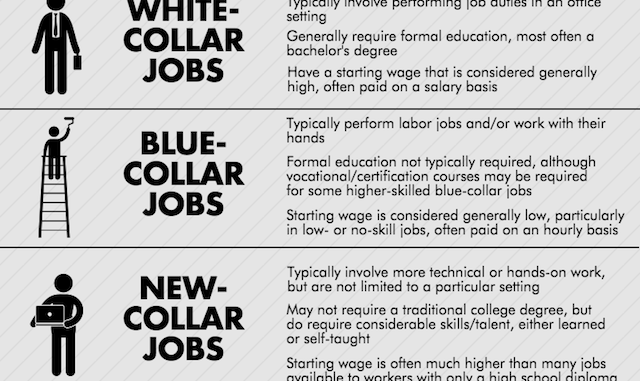
Rometty wants to see the development of a new education and career model: new collar, not blue or white collar. This means investing in skills development and responding without delays to the changing skills terrain. Breaking away from traditional models of recruiting those with four-year and advanced degrees.
“…knowledge and experience are no longer the primary commodity. Instead, what is far more valuable is to have the ability to learn and to apply those learnings into new and unique scenarios. It’s no longer about what you know, it’s about how you can learn and adapt.” ― Jacob Morgan, The Future of Work.
1. Be Smart and Hire People Much More Intelligent and Capable Than You Are
Jack Ma, the Chinese billionaire and executive chairman, Alibaba Group Holding stated this at a forum: “In recruiting people, I focus on hiring people who are smarter than I am. People with the potential to be my boss. I like people who I like, who are positive and who never give up.”
The best people are optimistic and don’t complain, he says.
Ma noted that he survived the corporate world for 20 years because he was a teacher in his former life.
“You always want your students to be better than you, to be a mayor, not in prison. Rule number one: help people to be better than you are,” he said.
2. New Collar Workers Are the Future
IBM CEO, Ginni Rometty says that as automation continues apace, the skills gap and job insecurity fears are real.
“When we talk of a skills crisis, I really do believe that 100 per cent of jobs will change,” she says.
But she is hopeful that the crisis can be averted.
Rometty wants to see the development of a new education and career model: new collar, not blue or white collar. This means investing in skills development and responding without delays to the changing skills terrain. Breaking away from traditional models of recruiting those with four-year and advanced degrees.
“At our company we are enthusiastic about fixing this issue, bridging the skills gap. We predict that if it is left unchecked, there will be unrest all over the world,” Rometty said.
3. Women Should Be Recruited Into More Technical Roles As This Will Lead To Diversification In Machine learning
LinkedIn co-founder and vice president of Product Allen Blue commented that AI and machine learning are an integral part of building tech, when one considers phones, banking and many other products and sevices.
“It’s important, as we go forward, that we are designing and building that tech in the right way,” he said, focusing on the innate biases that many algorithms have because they were designed and built by white males.
4. Dwell Upon Training the Youth and the Unemployed
The French minister of labour, Muriel Pénicaud, spent time explaining how her re-skilling programme works: it includes giving employees €500 a year to choose their own training programme.
Changing the mindset of French citizens who feel that they are victims of globalisation and technology is her target. She says that they need to be in the driving seat of being able to choose their future.
5. Utilising the Inner Strength of Survivors of Mental Health Challenges
Mental health was a major topic at Davos with a number of panel sessions on how to break the stigma and create more supporting workplaces. The CEO of HSBC, John Flint, observed that survivors are assets: “Those who have bounced back often possess a lot of resilience and resourcefulness”.
Adetola Salau, Carismalife4U@gmail.com, an advocate of STEM education, public speaker, author, and social entrepreneur, is passionate about education reform.
END

Be the first to comment